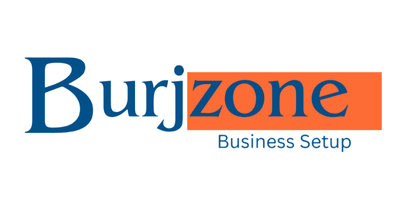Our Blog
Home / Blog
UAE Accounting Compliance Calendar 2025: Key Deadlines You Can’t Miss
Maintaining accurate and timely accounting compliance is vital for every business operating in the UAE, whether in Dubai, Abu Dhabi, Sharjah, or other emirates. The UAE’s regulatory landscape in 2025 requires companies to adhere to specific deadlines for financial reporting, VAT filing, audit submissions, and more.
This guide outlines the UAE accounting compliance calendar for 2025, highlighting key dates and requirements to help your business stay compliant and avoid penalties.
1. Importance of Accounting Compliance in UAE
Compliance with accounting standards and regulations ensures transparency, facilitates tax filings, and supports business credibility. The UAE government enforces strict deadlines for submissions to maintain the integrity of the financial ecosystem.
2. Key Accounting Deadlines in 2025
Financial Year-End Reporting: Most UAE companies follow the calendar year (ending 31 December).
Audited Financial Statements: Typically due within 6 months after the financial year-end, so by 30 June 2025 for calendar year companies.
Economic Substance Regulations (ESR) Report: Usually submitted by 31 March, depending on the entity’s fiscal year.
Ultimate Beneficial Owner (UBO) Declaration: Must be updated annually, typically aligned with the company’s financial year-end.
VAT Return Filing: VAT-registered businesses must file quarterly VAT returns within 28 days following the end of each tax period.
Corporate Tax Return Filing: Corporate tax returns for the year 2024 must be filed within 9 months after the end of the financial year, meaning by 30 September 2025 for calendar year companies.
3. Quarterly VAT Filing Deadlines in 2025
Q1 (Jan-Mar): Due by 28 April 2025
Q2 (Apr-Jun): Due by 28 July 2025
Q3 (Jul-Sep): Due by 28 October 2025
Q4 (Oct-Dec): Due by 28 January 2026
Ensure your VAT filings are timely to avoid fines and interest charges.
4. Audit Submission for Mainland and Free Zone Companies
Mainland companies are mandated to submit audited financial statements to the Department of Economic Development (DED) annually.
Free Zone entities may have specific audit and submission requirements based on their jurisdiction (e.g., DMCC, JAFZA).
Deadlines vary but typically align with the fiscal year-end plus six months.
5. Corporate Tax Deadlines and Requirements
With the introduction of the UAE Federal Corporate Tax in 2023, companies must comply with tax filings and payments. The tax return filing deadline is within nine months after the end of the financial year, making it critical to prepare financials early.
6. Consequences of Missing Deadlines
Penalties and fines from the Federal Tax Authority (FTA) and other regulators.
Legal action or suspension of licenses for continuous non-compliance.
Loss of business credibility and challenges in banking or government dealings.
7. Tips for Staying Compliant in 2025
Maintain organized accounting records throughout the year.
Engage professional accountants or audit firms familiar with UAE regulations.
Set reminders for all critical deadlines.
Use accounting software compatible with UAE VAT and tax requirements.
Review updates from the FTA and local economic departments regularly.
Final Thoughts
Understanding and following the UAE accounting compliance calendar is essential to avoid penalties and ensure smooth business operations across Dubai, Abu Dhabi, Sharjah, and beyond in 2025. Proper planning and professional support will keep your company aligned with all financial and regulatory deadlines.
#UAEAccounting2025 #VATFilingUAE #CorporateTaxUAE #AuditDeadlinesDubai #FinancialComplianceUAE
#AccountingCalendarSharjah #UAEComplianceTips #BusinessAccountingAbuDhabi #VATReturn2025 #UAEFinanceRegulations
